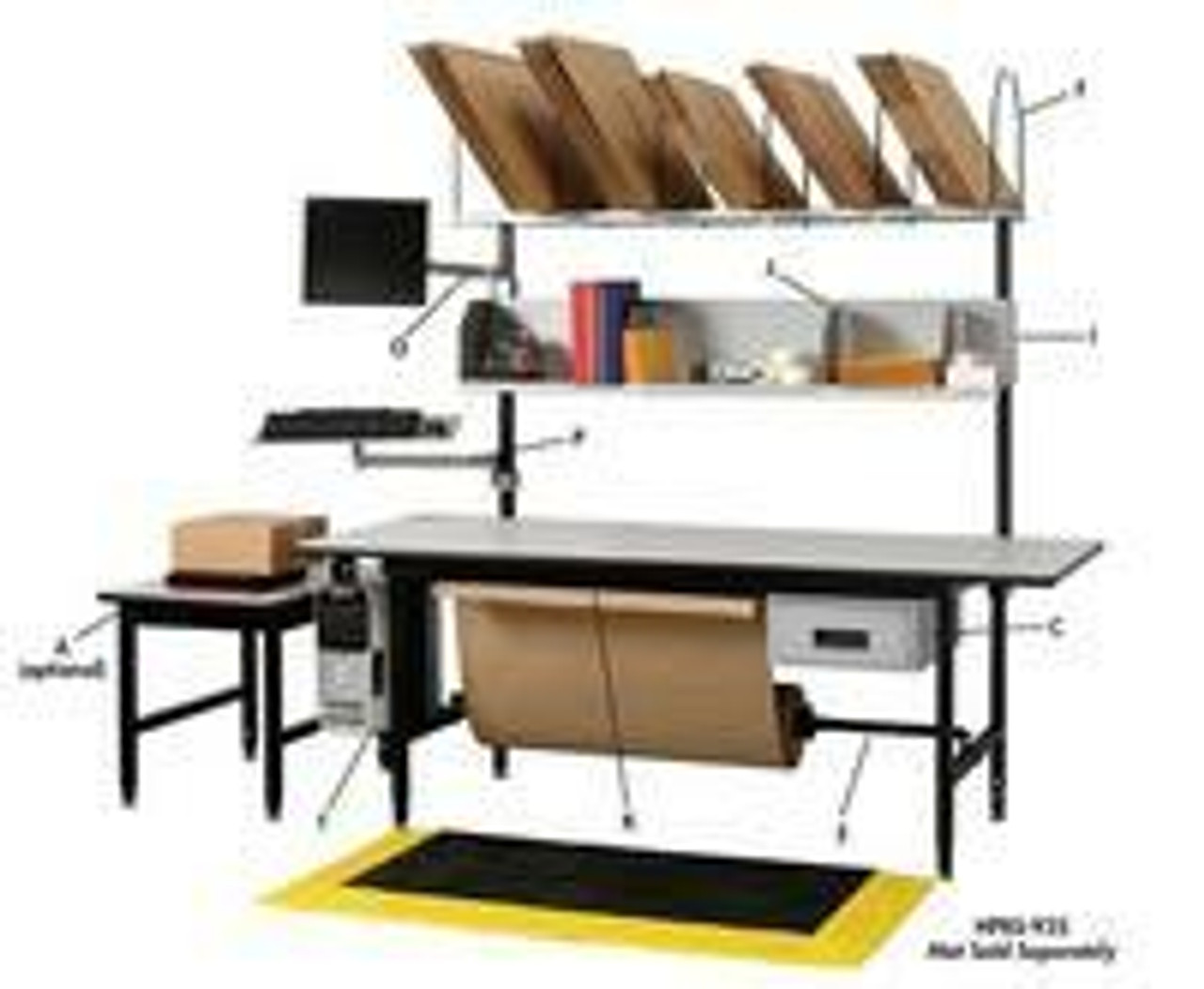
Workstations and Tables
With integrated storage, sturdy surfaces, and adaptability for accessories, Material Flow ensures you have a workspace tailored to productivity and safety! Shop industrial workstations and work tables from manufacturers such as Tennsco and Bench Depot. Choose from adjustable-height tables, modular workstations, and specialty configurations designed to meet the demands of industrial, commercial, and technical environments.
 Custom Solutions
Custom Solutions Great Pricing
Great Pricing Exclusive Products
Exclusive Products Competitive Shipping
Competitive Shipping Real People
Real People
What are industrial workstations?
Industrial workstations are specialized areas or setups within industrial facilities designed to accommodate specific tasks or operations, providing workers with the necessary tools, equipment, and workspace to perform their duties efficiently.
How are industrial workstations used?
Industrial workstations are used for various tasks such as assembly, testing, inspection, packaging, machining, or maintenance. They are equipped with work surfaces, storage solutions, ergonomic features, and sometimes specialized equipment or machinery tailored to the requirements of the task at hand.
What types of industrial workstations are available?
Industrial workstations come in various types, including:
- Fixed workstations permanently installed in a designated area
- Mobile workstations on wheels for flexibility
- Modular workstations with customizable components
- Ergonomic workstations designed to reduce strain and fatigue
- Specialized workstations for specific applications such as electronics assembly or laboratory work
What are the key features of industrial workstations?
Key features of industrial workstations include:
- Sturdy construction for durability in industrial environments
- Ergonomic design to enhance worker comfort and productivity
- Customizable configurations to accommodate specific tasks or equipment
- Integrated storage solutions for organizing tools and materials
- Compatibility with accessories such as lighting, power outlets, or tool holders
What are the advantages of using industrial workstations?
The advantages of using industrial workstations include:
- Improved organization and efficiency in task execution
- Enhanced worker productivity and morale
- Reduced risk of errors or accidents
- Flexibility to adapt to changing work requirements
- The ability to create dedicated work areas optimized for specific operations

